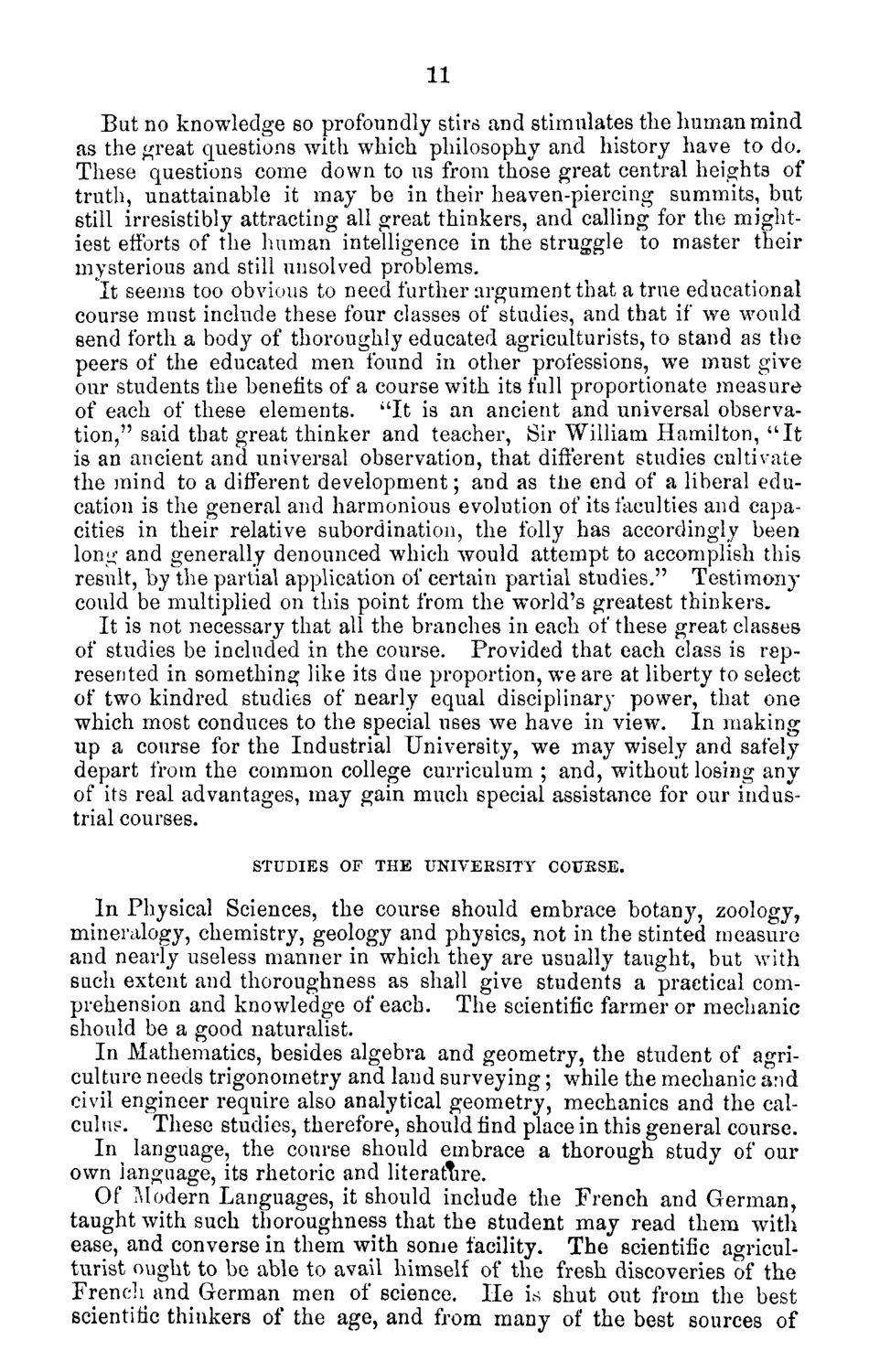| |
| |
Caption: Course Catalog - 1867
This is a reduced-resolution page image for fast online browsing.

EXTRACTED TEXT FROM PAGE:
11 But no knowledge so profoundly stirs and stimulates the human mind as the great questions with which philosophy and history have to do. These questions come down to us from those great central heights of truth, unattainable it may be in their heaven-piercing summits, but still irresistibly attracting all great thinkers, and calling for the mightiest efforts of the human intelligence in the struggle to master their mysterious and still unsolved problems. It seems too obvious to need further argument that a true educational course must include these four classes of studies, and that if we would send forth a body of thoroughly educated agriculturists, to stand as the peers of the educated men found in other professions, we must give our students the benefits of a course with its full proportionate measure of each of these elements. "It is an ancient and universal observation," said that great thinker and teacher, Sir William Hamilton, " I t is an ancient and universal observation, that different studies cultivate the mind to a different development; and as the end of a liberal education is the general and harmonious evolution of its faculties and capacities in their relative subordination, the folly has accordingly been long and generally denounced which would attempt to accomplish this result, by the partial application of certain partial studies." Testimony could be multiplied on this point from the world's greatest thinkers. It is not necessary that all the branches in each of these great classes of studies be included in the course. Provided that each class is represented in something like its due proportion, we are at liberty to select of two kindred studies of nearly equal disciplinary power, that one which most conduces to the special uses we have in view. In making up a course for the Industrial University, we may wisely and safely depart from the common college curriculum ; and, without losing any of its real advantages, may gain much special assistance for our industrial courses. STUDIES OF THE UNIVERSITY COUBSE. In Physical Sciences, the course should embrace botany, zoology, mineralogy, chemistry, geology and physics, not in the stinted measure and nearly useless manner in which they are usually taught, but with such extent and thoroughness as shall give students a practical comprehension and knowledge of each. The scientific farmer or mechanic should be a good naturalist. In Mathematics, besides algebra and geometry, the student of agriculture needs trigonometry and land surveying; while the mechanic arid civil engineer require also analytical geometry, mechanics and the calculue. These studies, therefore, should find place in this general course. In language, the course should embrace a thorough study of our own language, its rhetoric and literature. Of Modern Languages, it should include the French and German, taught with such thoroughness that the student may read them with ease, and converse in them with some facility. The scientific agriculturist ought to be able to avail himself of the fresh discoveries of the French and German men of science. He is shut out from the best scientific thinkers of the age, and from many of the best sources of
| |